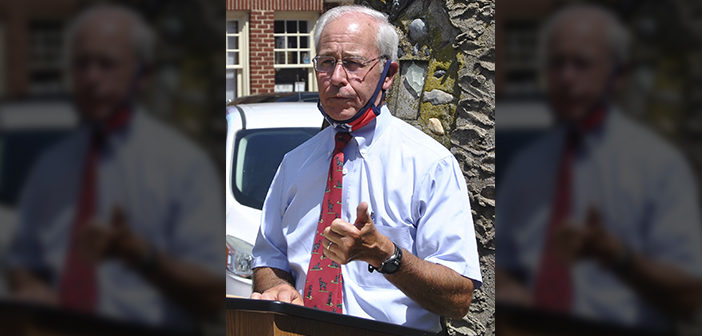Now that the Sullivan Baby Doe settlement has been announced, there is one question left to address: What do you do with a settlement windfall?
“With the pervasiveness of the opioid problem in our region, the options for using this money to make an impact are wide open,” said First Judicial District Attorney General Ken Baldwin. “I’m hoping the counties and cities that were part of this settlement can get together and use a portion of the money for a treatment facility.”
A regional treatment facility would serve to alleviate stress on our judicial and law enforcement system. We have folks within our detention facilities who need assistance to recover from addiction that they simply cannot get while incarcerated. – Washington County Mayor Joe Grandy
How the settlement dollars are to be spent ultimately lies with the region’s county commissions. There are no restrictions on how the money can be spent.
“I would hope that the Commission helps the community, addicts and law enforcement agencies that have had to deal with this problem,” Baldwin said.
Distribution of the funds will be on a per capita basis. All counties will receive enough from the settlement to equip a mobile unit that would enable delivery of treatment to patients.
Washington County Mayor Joe Grandy agrees with Baldwin that a treatment facility would be a great use of settlement funds.
“A regional treatment facility would serve to alleviate stress on our judicial and law enforcement system,” Grandy said. “We have folks within our detention facilities who need assistance to recover from addiction that they simply cannot get while incarcerated.”
Attorneys General in the first, second and third judicial districts filed the suit in June 2017 on behalf of Baby Doe and a group of local governments in Northeast Tennessee. Once Baby Doe’s damages and plaintiffs’ attorney fees are deducted, it is estimated that just over $21 million will be split among local governments that elected to participate in the suit.
No taxpayer funds were expended in litigation of the case, which aligns with the footprint of Tennessee’s First, Second and Third Judicial Districts. Accordingly, the suit has been consistently championed by local district attorneys general (DAGs) Barry Staubus, Dan Armstrong and Baldwin.
“From day one, our goal was to draw attention to the damage that addiction causes in communities, especially to the suffering of infants who are born drug dependent,” said Barry Staubus, DAG for Tennessee’s Second Judicial District. “While there’s no way to ever replace or restore the lives that have been disrupted, the resources from this settlement can help us repair some of what’s been lost and give us the tools to help prevent this from happening again. The pill mills that we have shut down and the settlements we have received send a strong signal that northeast Tennessee is not open for exploitation. We know how to fight, and we fight back.”
The City of Johnson City made the decision earlier this year to opt out of the lawsuit since the city is part of Washington County. City Commissioners decided in January that joining the lawsuit when Washington County was already involved would be redundant since city residents are also residents of Washington County.




